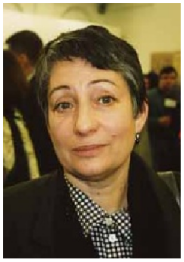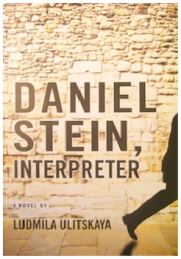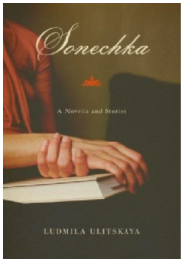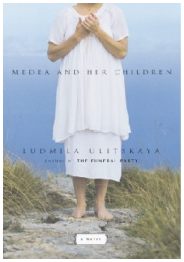LUDMILA ULITSKAYA | ||
 | Having worked in the field of genetics and biochemistry, Ludmila Ulitskaya began her literary career by joining the Jewish drama theatre as a literary consultant. Her first novel “Sonechka” (Сонечка), published in Novy Mir in 1992, was immediately admired, and was shortlisted for the Russian Booker Prize. Her works have been translated into many languages and have been awarded international and Russian literary prizes, including the Russian Booker for “Kukotsky's Case” (2001). | |
| | ||
| Ludmila Ulitskaya Daniel Stein, Interpreter, A Novel in Documents Translated by Arch Tait Overlook Duckworth New York and London, 2011 Hardback, $27.95 ISBN-13: US 978-1-59020-320-0 Hardback, £16.99 ISBN-13: UK 978-0-7156-4163-7 Hardback, Can $35.00 409 Pages Winner of the Russian National Literary Prize, 2007 | |
Back to HOME / Back to Book Archive
| Ludmila Ulitskaya SONECHKA : A Novella and Stories Translated by Arch Tait Schocken Books/ Random House, New York, 2005 Hardback, $23.00 ISBN 0-8052-4195-7 242 pages Buy from Amazon Shortlisted for the Rossica Translation Prize, 2007. "Arch Tait's English translation faithfully captures Ulitskaya’s carefully constructed colloquial style" "From one of the most important living Russian writers comes a collection of storytelling miracles. The Russian women in Ludmila Ulitskaya's stories are unlike any you have met before. They are charming, intelligent, seductive, and strong enough to carry an entire dysfunctional country on their backs." Author of The Russian Debutante's Handbook In these stories, love and life are lived under the radar of oppression, in want of material comfort, in obeisance to or matter-of-fact rejection of the pervasive restrictions of Soviet rule. If living well is the best revenge, then Ludmila Ulitskaya's characters, in choosing to embrace the unique gifts that their lives bring them, are small heroes of the quotidian, their stories as funny and tender as they are brilliantly told. In "Queen of Spades", Anna, a successful ophthalmological surgeon in her sixties; her daughter, Katya; and Katya's teenage daughter and young son live in constant terror of Anna's mother, a domineering, autocratic, aging former beauty queen. In "Angel", a closeted middle-aged professor marries an uneducated charwoman for love of her young son, raising the child in his image. In "The Orlov-Sokolovs", perfectly matched young lovers are pulled apart by the Soviet academic bureaucracy. And in the stunning novella "Sonechka", the heroine, a bookworm turned muse turned mother, reveals a love and loyalty at once astounding in its generosity and grotesque in its pathos. | |
Back to HOME / Back to Book Archive
| From "Sonechka" | |
| Ludmila Ulitskaya MEDEA AND HER CHILDREN Translated by Arch Tait Ulitskaya was awarded the Booker Russian Novel Prize in 2001. “ Through lust to love and into the abyss | |



